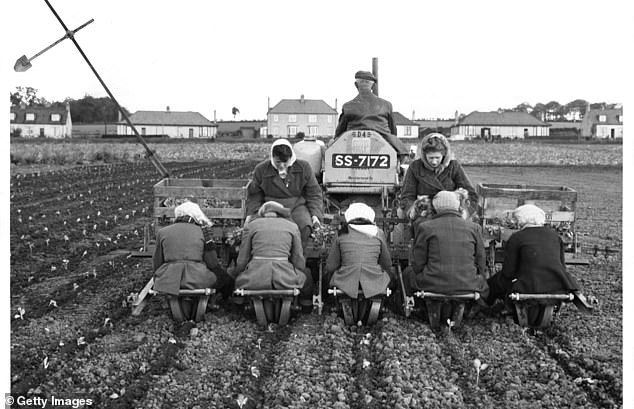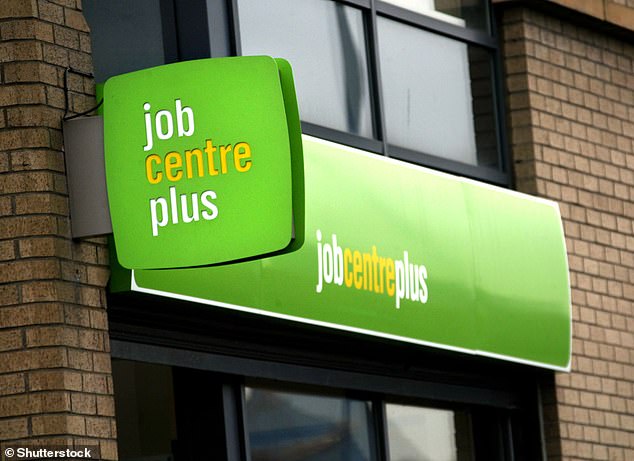It is my good fortune to have been in constant employment for the last 35 years. Every month without exception since August 1990, recompense for my efforts has arrived in my bank account on or around the 15th.
I say I have been lucky, and it’s true, but that’s not the whole story. A certain sense of obligation was in the mix too. I am capable of paying my own way in society and therefore I must. It is my moral duty.
Parents who do well in raising their children tend to ensure this thinking is bedded in some time in their teens. By the time they leave full-time education, it is second nature. The thought of doing anything other than securing a means of supporting myself after graduating in the summer of 1990 simply did not occur.
Live off the state for a few months? Doss around aimlessly between weekly visits to the dole office? I couldn’t have looked my parents in the eye.
My father was one of six siblings growing up in a council house in St Andrews, Fife, in the 1940s and 1950s. Their mother was a school cleaner for part of this time and their classmates knew it, which embarrassed them, but the household needed the money.
The family budget didn’t just require both parents’ earnings but a portion of their children’s earnings, too, when they were old enough for paper rounds, potato picking, grocery deliveries.
Little thought was given to sending any of these bright kids off to university (my father was in his 70s before he got his degree) because the focus was on income – bringing in enough to survive under their own steam and to hold their heads up high while doing it.
I have much to thank my father for but, the older I get, the more grateful I am for the lessons learned from his background.

Jonathan worked in several different jobs, including as a potato picker, a barman and a caddy

‘I have much to thank my father for but, the older I get, the more grateful I am for the lessons learned from his background,’ writes Jonathan
They help me understand why he was never entirely comfortable seeing his two sons loafing during summer holidays in our later years at school and at university. He was full of suggestions for jobs we could get. Why not talk to so and so at such and such a bar – or go down and see the caddy master at the Old Course? Why not see if your pal’s dad, the farmer, is looking for potato pickers?
Always the direct approach, the face-to-face contact with prospective employer. Never browsing the situations vacant in some impersonal Job Centre.
I loved that philosophy: knock on doors; present yourself to them; tell them you’ll consider anything; what’s the worst that can happen?
The worst that could happen, I discovered, is a few places would say no before someone said yes. Potato picker, barman, caddy … I did them all and learned the value of earned money in my back pocket.
Here is another emotion that grows in me the older I become: cold rage. Furious impatience with the feckless and cynical who idle while the rest of the country goes out to work for them – and with the equally cynical political parties (the SNP springs at once to mind) who appease this shameless demographic for their vote.
Who are these people? They are the one in 10 working age Scots who have never had a job in their lives.
Figures from the Office of National Statistics (ONS) released this week show that, in 2024, there were 165,700 people aged 16-64 in this land who are not in full-time education and have never worked. That is 14,500 more than there were in 2023 and 54,200 more than there were in 2022.
Wage-earners like me, fortunate enough to be healthy enough to keep that salary coming in, must remember, of course, that many do not enjoy their luck. They are too unwell to hold down jobs and, from the ONS evidence, have been since their mid-teens.

Jonathan’s father always suggested face-to-face contact with a prospective employer, rather than browsing opportunities in the ‘impersonal Job Centre’.
Their number is also rising. Since 2011, those in Scotland identifying as having a long-term illness have increased by almost three per cent to more than one in five of the population in 2025.
Those who are genuine have my sincere sympathy. Their affliction may be closing off a highly rewarding avenue of adult life – the chance to earn their own money and support their own lifestyle – and it is not their fault.
But how many of the one in five fall within this category? Certainly not all. We know beyond question that some deploy ‘long term illness’ as a protective shield against pulling their weight in society.
And we live in an age where extreme indignation at anyone questioning the validity or seriousness of said long term illness is terribly fashionable. Earbashings form the stock response to efforts to dig a little deeper into the question of ability to work where medical conditions are claimed or diagnosed.
To take an example from recent court rolls, I imagine the late darts legend Jocky Wilson’s niece Sarah would be black affronted if anyone wondered about the £2,000-plus a month she receives in benefits due to the mental and physical health issues which leave her unable to work.
It is already clear she has a temper because that, surely, is what drove her to rip out a chunk of a 61-year-old woman’s hair during a baby shower in Fife last year, leaving her victim with a bald patch.
Who are we to comment on whether someone who is clearly fit enough to wreak havoc at a baby shower may be fit enough to do something useful with herself and lighten the burden on the taxpayer who finances her lifestyle? We know nothing of the health issues which make her unfit even for unpaid work as a punishment for her crime.
What we do know is that our nation’s underbelly of workshy is insanely bloated, that lies are being told, excuses made and benefits extracted on the back of them. We know, too, that if the number of people who have never worked their lives has risen by almost 50 per cent in two years then this cannot equate to a collapse in our country’s health or in the number of jobs available.
I equate much of it to a moral collapse – a shrugging of the shoulders as the rest of us knock our pans in to keep not just our own lives afloat, but theirs too. I gasp at the size of those monthly benefits cheques because they are equivalent to a decent wage – a wage grafted for – and we know many in receipt of them don’t fancy the grafting bit, would rather be home in front of the telly and get paid anyway.
Oh yes, I feel their rage for questioning them. But I’m raging too. After 35 years as an income tax payer, I have a right to be.
I never really knew my grandmother. She died in 1969, aged just 49, when I was a year old. She used to be a cleaner at Madras College and sometimes enlisted one of the pupils – my father – to lift the classroom chairs onto the desks so she could vacuum underneath.
I understand why he was embarrassed as a boy. But I’m proud to be the school cleaner’s grandson.
